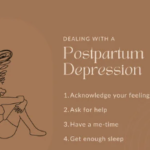As the festive period approaches, families across the world begin to plan for gatherings, feasts, and celebrations. It’s a time that many eagerly await. However, for families living with autism or those who support loved ones on the autism spectrum, the season can bring an added layer of stress, leaving many to wonder how to preserve their mental health amidst the heightened expectations. I am a passionate advocate for autism awareness through my experience, we will delve into how families can navigate these challenges, set boundaries, and prioritize their well-being during this often overwhelming time. If you learn anything, let us know in the comment section.
Emotional and Social Overload: A Double-Edged Sword
For individuals on the autism spectrum, the holiday season can be an emotional minefield. The festive period, often filled with gatherings, music, and excitement, presents a barrage of sensory stimuli that can quickly become overwhelming.
The lights, sounds, and crowds that are celebrated by many can feel like an assault on someone with autism. Globally, communal celebrations are cherished, this sensory overload can make it difficult for children and adults on the spectrum to feel comfortable.
The excitement around Christmas is contagious, but for those on the spectrum, the sensory chaos makes it hard to participate fully. They might have to take breaks, retreat to a quieter space, and give our son the room to regulate himself.”
For your family, it’s important to recognize when someone is feeling overstimulated. Setting up a designated quiet space where your loved one can retreat to, whether it’s a bedroom or a corner with calming activities, can offer relief.
Additionally, limiting the length of time spent at social gatherings or adjusting the environment (dim lights, soft music, etc.) can help reduce sensory overload.
The Strain of Disruption: Coping with a Changed Routine
For many individuals with autism, routine is essential. The holidays often introduce unpredictable changes—different mealtimes, unfamiliar visitors, or even altered sleep schedules.
These disruptions can lead to anxiety and frustration. The regular schedule is upended, which is typical of children with autism. It is important to prepare in advance. Talk about what to expect, and if you have to plan of changing routines, involve the child of the changes and what to expect as much as possible.”
Setting expectations early and maintaining some consistency, even during the holidays, can help individuals with autism feel more secure.
If your child or loved one responds well to visual schedules, use a calendar to mark out upcoming events, explaining each change in a way they can understand. If possible, keep certain routines intact, like mealtime or bedtime.
Setting Boundaries: Protecting Your Mental Health
The festive season can also feel like a time when everyone’s expectations are amplified. You might feel pressured to attend every family event, contribute financially, or entertain guests, all while trying to maintain your mental health.
This pressure is often even more pronounced for families dealing with the additional complexities of autism.
In an article titled “How to Set Boundaries and Why It Matters for Your Mental Health,” published by the University of California in March 2024, the importance of setting boundaries for mental well-being was discussed. The article outlines five key types of boundaries to protect your mental health:
- Emotional Boundaries: Safeguarding your emotional well-being.
- Physical Boundaries: Defending your personal space.
- Workplace Boundaries: Maintaining a healthy work-life balance.
- Material Boundaries: Protecting your personal belongings.
- Time Boundaries: Ensuring your time is used wisely and not misused.
I believe setting boundaries is one of the most important ways to preserve your peace. You don’t have to say yes to every invitation, and you don’t have to overspend to make others happy. Family will understand if you explain that you need to take care of yourself and your loved ones first.
It’s okay to say no. Prioritize your mental health and your family’s well-being over fulfilling every expectation placed upon you.
If you are feeling overwhelmed, it’s perfectly fine to politely decline invitations to certain events or to limit your participation in gatherings.
Setting clear boundaries, whether they involve limiting social engagements or managing financial contributions, can reduce stress and help you maintain control of your mental health.
Managing Financial Pressure: Celebrating without Compromise
For instance, the festive season often carries with it the expectation of lavish feasts, new clothes, and gift-giving.
These financial pressures can become a significant source of stress, especially if you are already managing the unique needs of a loved one with autism. Adeola candidly admits that, in the past, the pressure to meet these expectations caused anxiety in her household.
“It’s easy to get caught up in the notion that the holidays should be about abundance and grandeur,” she says. “But we have learned to redefine what celebration means to us. It’s not about how much we spend but how we connect as a family.”
One way to reduce the financial burden is by focusing on the things that matter most—spending time together, creating simple traditions, and cherishing memories rather than material gifts.
Instead of lavish gifts, consider making something meaningful, such as personalized cards, a photo album, or a small DIY gift. Alternatively, if you feel the need to exchange presents, set a budget and stick to it. This helps avoid the financial strain that can lead to burnout.
Grief and Loss: Coping During the Holidays
For many families, the festive period is also a reminder of loved ones who are no longer with them. The absence of a cherished family member can feel especially painful during this time. Whether through death, estrangement, or distance, the loss can overshadow the festivities.
The holidays bring up memories of loved ones who have passed, and sometimes it’s difficult to know how to help those on the spectrum understand why certain family members aren’t there, especially if they are not able to express themselves clearly.
For families navigating grief during the holidays, it’s important to create space for reflection. Honor the memory of lost loved ones through rituals that can bring comfort, such as lighting a candle, sharing stories, or holding a memorial meal. It’s also essential to acknowledge that everyone grieves differently.
For those on the autism spectrum, it might be challenging to verbalize or process emotions the way others do. Be patient and understanding as you support each other.
Navigating Family Disagreements and Conflict
No family is immune to disagreement, especially during the holidays when stress levels tend to be higher. Family dynamics can sometimes become strained, and for individuals with autism, conflict can be particularly distressing.
navigating these moments is to prioritize calmness and understanding over confrontation. Sometimes, it’s best to take a step back and allow tempers to cool before addressing any issues.
If you’re dealing with tensions in your family, it’s important to maintain open communication. Setting expectations about what is and isn’t acceptable during holiday gatherings can help avoid unnecessary conflict.
If an argument arises, try to de-escalate the situation by remaining calm and focusing on the issue at hand instead of letting emotions take over.
Family therapy or support groups might also be a helpful resource during this time, providing strategies to handle stress and conflict constructively.
Preventing Celebration Burnout: The Importance of Self-Care
Amid the rush of holiday preparations and gatherings, self-care is often neglected. Yet it is essential for maintaining your own mental health. Self-care isn’t just about you; it’s about being able to show up for your family in a meaningful way.
Find moments of respite for yourself. Whether it’s taking a walk, practicing deep breathing, or even taking a nap, prioritize rest to help manage stress levels. And remember, self-care doesn’t have to be a grand gesture; it’s the small, consistent actions that can make a big difference.
Looking Beyond the Holidays: Long-Term Wellbeing
The festive period should not be the only time you focus on mental health. It’s important to build healthy coping mechanisms that last year-round.
This means establishing routines that prioritize well-being, such as regular check-ins with family members, maintaining therapy or support group participation, and ensuring that your loved one with autism has the resources they need to thrive.
By approaching mental health with consistency and long-term care, the pressures of the holidays can be more manageable, and you can build resilience as a family.
Conclusion: Empowering Families to Thrive
The festive period doesn’t have to be a source of anxiety and stress. With the right strategies in place, you can create a season that is both joyful and manageable.
Whether you are dealing with sensory overload, financial pressures, grief, or family conflict, setting clear boundaries, practicing self-care, and communicating openly can help preserve your peace.
By taking small steps to support your mental health, you can ensure that the festive period is a time of connection, joy, and resilience for you and your loved ones.



















